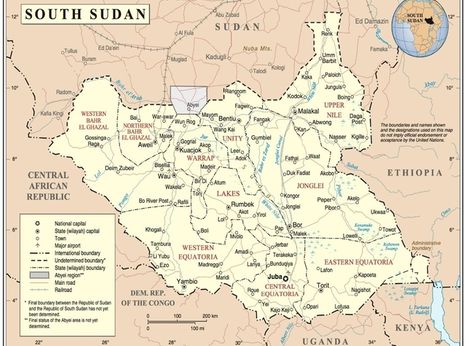Member of peace agreement body detained

Since the start of South Sudan’s internal armed conflict in December 2013, hundreds of people, mostly men, have been detained under the authority of the National Security Service (NSS) and Military Intelligence Directorate in various detention facilities across the capital city, Juba. Many of those who have been detained have been held under the category of “political detainees” on allegations that they have communicated with or supported the opposition. Others, for instance Michael Wetnhialic was detained multiple times for criticizing the Director of the NSS on Facebook.
Amnesty International has documented numerous arbitrary detentions by the NSS in multiple facilities where detainees are often subjected to torture and other ill-treatment – some held incommunicado without access to a lawyer, or family members. Others have been forcibly disappeared. Prolonged and arbitrary detention, as well as enforced disappearances and torture and other ill-treatment have all been frequently used by the authorities in South Sudan since the initial outbreak of the conflict in December 2013.
For instance, Peter Biar Ajak, a prominent South Sudanese academic and activist, was arrested by the National Security Service (NSS) at Juba International Airport on Saturday 28 July. He was held at the NSS Headquarters in Juba. On 11 June 2019 a South Sudanese court sentenced Biar to prison for promoting public violence and disturbing the peace in what Amnesty International called a ‘sham trial’ and he was transferred to Juba Central Prison. President Salva Kiir pardoned Biar in January 2020 after which he was released.
Dong Samuel Luak, a prominent South Sudanese lawyer and human rights activist, and Aggrey Idrey Idri, a government critic and member of the Sudan People’s Liberation Movement-in-Opposition (SPLM-IO), went missing in Nairobi, Kenya on 23 and 24 January 2017. Credible sources indicated to Amnesty International that they were then seen at the NSS headquarters in Juba. They were removed from this facility on the night of 27 January 2017. In April 2019, the UN Panel of Experts on South Sudan issued a report which concluded that it was “highly probable” that the two outspoken critics were extrajudicially executed by NSS agents while being held in a facility on the President’s farm in Luri on the outskirts of Juba on 30 January 2017.
In the NSS prison headquarters in the Jebel Neighbourhood ('Blue House'), detainees are badly beaten, especially during interrogation, or as a form of punishment. Due to the poor conditions of the prisons, as well as inadequate access to medical care, the health of those detained often deteriorates.
South Sudan’s political environment has remained intolerant of criticism of government actions and policies, leading to intimidation, harassment and detention of civil society activists, human rights defenders and independent journalists. This has led to an environment of self-censorship for media and human rights workers where, with the pervasive state surveillance, people no longer feel safe to speak freely and openly about the conflict and human rights situation.